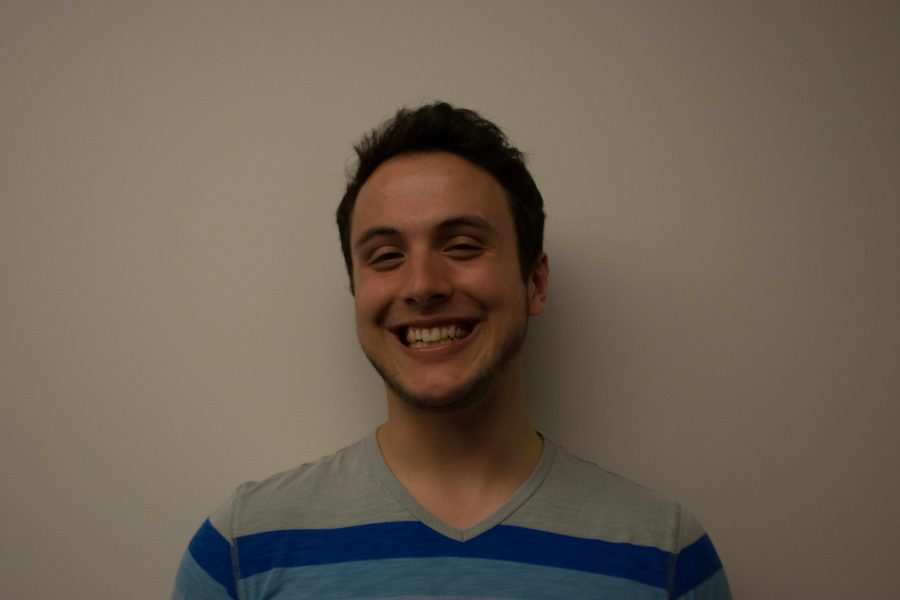Kyle Forgit ’18 presents paper on transhumanism at Mind Over Major
April 20, 2017
Transhumanism is a movement which uses technology to help humans surpass their limitations. Kyle Forgit, a junior English major, presented a paper titled “The Problem with Utopia: Socioeconomic Implications of the Transhumanist Movement” at Mind Over Major, Saint Anselm College’s annual interdisciplinary undergraduate conference.
Transhumanism already occurs through gene editing and prosthetics. Forgit argues that these technological advancements are expensive. and a “self-aggravating process” where the rich will become richer, stronger, and faster while the poor are left behind.
Forgit told The Crier that although innovative and expensive technology does filter down to people in poverty transhumanism will leave lower socioeconomic classes behind the curve. The gulf between the socio economic classes will become even more exaggerated when the rich are able to artificially surpass their biology.
He gave the example of prosthetic limbs, which can cost $5,000 to $50,000 and must be replaced every three to five years. These costs are unaffordable to many people without insurance and certainly the millions of people worldwide living below the poverty line. He states that prosthetics are not a particularly self-aggravating technology because they cannot currently outperform human limbs.
However, the question then becomes: what if prosthetic limbs do become more efficient or powerful than our natural ones? Forgit tells The Crier that this could raise questions about the rights of athletes with these prosthetics.
In his paper, Forgit discussed at length the ethical issues of transhumanism. He quotes Francis Fukuyama: “If we start transforming ourselves into something superior, what rights will these enhanced creatures claim…? If some move ahead, can any afford not to follow?”
Forgit states that in a society where transhumanism is realized “lower socioeconomic status also means an objective inferiority in capability; no unenhanced human brain could compete with the calculative might of a cybernetic supercomputer.”
He claims that transhumanism is happening whether we want it to or not. To prevent the social injustice of transhumanism could create we need to begin bringing the socioeconomic gap that already exists today. Admitting the complexity of solutions to closing the gap, he suggests the proliferation of transhumanistic technologies such as medical techniques and products.
Forgit claims that “in some ways, the eradication of poverty is as much a transhumanistic goal as is the development of a cybernetic ‘super brain’”. In his medical example, he states that access to modern medicine would cause the human species to flourish. This fits with the goal of transhumanism; the use of technology for humans to enhance themselves beyond biological limits.
Forgit became interested in transhumanism through the works of Arthur C. Clark and the “Stuff to Blow Your Mind” podcast. He wrote the paper for his Honors Colloquium “Science and Society,” taught by Dr. Brian Penney from the Department of Biology.
He was one of three students, including Mina Alrais ’17 and Courtney Puccio ’17, who presented during the “Science: Theories and Applications” panel at Mind Over Major. Forgit told The Crier that he decided to present at this colloquium because “The topic of transhumanism is not commonly discussed in public forums and I wanted to bring attention to its pressing relevance.”



